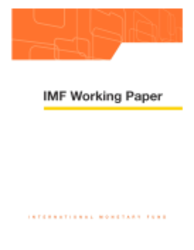
Do Elections Always Motivate Incumbents? Experimentation vs. Career Concerns
This paper studies a principal-agent model of the relationship between an incumbent officeholder and the electorate, where the officeholder is initially uninformed about her ability. If officeholder effort and ability interact in the "production function" that determines performance in office, then an officeholder has an incentive to experiment-that is, raise effort so that performance becomes a more accurate signal of her ability. Elections reduce the experimentation effect, and the reduction in this effect may more than offset the positive "career-concerns" effect of elections on effort. Moreover, when this occurs, appointment of officeholders may Pareto-dominate elections.
Publication date: March 2003
ISBN: 9781451847796
$15.00
Add to Cart by clicking price of the language and format you'd like to purchase
Available Languages and Formats
| English |
Prices in red indicate formats that are not yet available but are forthcoming.
Topics covered in this book
This title contains information about the following subjects.
Click on a subject if you would like to see other titles with the same subjects.
Civics and Citizenship , Civics and Citizenship , Career Concern , Elections , Citizen Candidate , Experimentation , Tournaments , Political Business Cycles , election , voters , probability , voting , Models of Political Processes: Rent-seeking , Legislatures , and Voting Behavior , Positive Analysis of Policy-Making and Impleme
Summary



